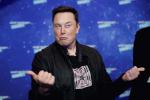SpaceX performed the first static fire attempt of its Booster 7, loaded with 33 Raptor engines that roared to life for nearly 10 seconds in Boca Chica, Texas on Thursday.
Elon Musk, the CEO of SpaceX said in a tweet after the test that one engine was turned off by the team just before ignition, and another engine stopped by itself.
"...so 31 engines fired overall," Musk said. "But still enough engines to reach orbit!"
SPACEX LIMITS UKRAINE'S MILITARY USE OF STARLINK SATELLITE BUSINESS
The Super Heavy booster is just one half of SpaceX’s Starship rocket system that the company plans to use to reach the moon and Mars.
The launch on Thursday gets the vehicle one step closer to its first orbital flight in the months to come.
When the countdown concluded, the engines ignited with bright orange flames and massive clouds pouring out as the 23-story-tall rocket was held in place vertically on a platform next to a launch tower.
SPACEX LAUNCHES 9,000-POUND SATELLITE INTO ORBIT FROM FLORIDA
Once the booster is connected to the spacecraft, the entire rocket will stand 324 feet high, or 120 meters, making it taller than the Statue of Liberty.
Whether SpaceX will conduct another static-fire test of the Booster 7 before launching the next-generation unmanned rocket for the first time remains unclear.
The test mission will have the rocket launch from Texas and land off the coast of Hawaii.
SPACEX RAISES MORE THAN $750 MILLION IN NEW FUNDING WITH A VALUATION OF $137 BILLION
SpaceX President Gwynne Shotwell said during a conference on Wednesday that the exact date of that launch depends on the outcome of Thursday’s test firing, but it could happen "in the next month or so."
"Keep in mind, this first one is really a test flight," Shotwell said. "The real goal is to not blow up the launch pad, that is success."
When SpaceX tested the Super Heavy booster in July 2022, the engine section exploded into flames.
CLICK HERE TO READ MORE ON FOX BUSINESS
Reuters reported that the test-firing on Thursday set a record for the most thrust ever produced by a single rocket – nearly 17 million pounds compared to the 10.5 million pounds generated by the Russian N1, and 8 million pounds for NASA's Space Launch System, SLS, Rocket. It also set the record for the most rocket engines ever fired simultaneously, beating out 30 engines from the N1.


